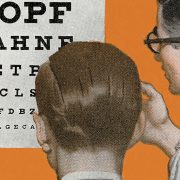Patient Experience Training
The amount of time a patient spends with a doctor is a small percentage of the time they actually spend in the office. On average, patients spend about seven minutes with the doctor. If a consult appointment is two hours, what do you do with the rest of that time? Doctors and other team members are central to properly harmonizing the patient experience.
The experience is the marketing and not the advertising.
The importance of hidden systems
It is important to develop hidden systems so you can engage everyone equally. A hidden system will enable you to know who a patient is and what they do without them having to tell you every time they are in front of you.
“50-80% of the information provided by the clinician is instantly forgotten. Of the balance of information that is remembered, only 50% of it is remembered correctly.” –Greg Korneluk, Physician Success Secrets
What a patient remembers
For patients, 25% is remembered at best post-meeting. We go into the office and we throw all of this information at them like driving distance astigmatism, presbyopia, etc. A patient could potentially leave feeling completely overwhelmed. That patient goes home and says all I know is that my insurance only covers part of it. It will cost $2,000 and I have stigma.
We have to remember that our jargon dissuades people from understanding what we are talking about. Over the course of that hour or so conversation, they are burdened with information, then we dilate them and make them sign stuff.
What can we do to make it better?
In his book, Secret Service, John DiJulius III says that Americans have 1/20th the human interactions we had just 20 years ago. Rather than shopping at a store, we are online. Instead of meeting in person, we are doing webinars, video calls, etc. Rather than going to a bank, we do mobile banking.
“We are serving people that are starved for human interactions.”
When people are coming in, they are expecting more than just a great refraction. They want to talk with you. They want you to ask them about their family life, etc. And they haven’t had a chance to tell anyone that and you may be the only they can talk to. We owe it to people to do a better job of interaction because they want meaningful interactions.
People are paying for experiences—for those interactions. You can drop this into any business model as these are the foundational elements of how businesses have changed over time.
Progression of Economic Value
- Commodities (Agrarian Economy), which turns into…
- Goods (Industrial Economy), which turns into…
- Services (Service Economy), which turns into…
- Experiences (Experience Economy) — such as Starbucks
As much as you grow, what are you going to try and do at all times? You cannot be standard. You have to be unique.
So, what does this mean for doctors?
From a patient standpoint, they are concerned with the following:
- Was I treated well?
- Were they trustworthy?
- Were they organized?
- Did they say thank you?
- Was the doctor nice?
- Was the office clean?
The patient is saying, I care more about this than technology. Obviously, I care about outcomes as well, but I want these things also.
A patient expects that you will have the best technology and a pristine outcome–these are known commodities. It is the steps above that take you above and beyond and will be the reason a patient chooses one doctor over another.
How should our teams adapt?
John DiJulius nails mass customization in his book What’s the Secret, “With the amount of intel healthcare has on its customers, it should be the best experience on earth.”
By being in healthcare, we have more information on our customers than most organizations and we rarely use it. We need to use it! “You cannot be experientially excellent until you are operationally excellent,” DiJulius says.
You don’t get credit for having warm cookies in your waiting area if the trash can in your public restroom is overflowing because someone hasn’t been in there for awhile. It’s the overall experience that a patient will remember. The entire experience from the front door to the checkout needs to be worth every penny.
Details are everything: From the minute a patient walks in, your staff members are on stage. Be personal and warm. You want the experience to be so wonderful that rather than a family member just dropping off the patient, they also want to join in on the experience of having good conversation, eating warm cookies and drinking a customized, Starbucks-like coffee.
A lot of people won’t take the leap if they don’t know where they’ll land. The market already believes that you are the best around at what you do. I just know if you pay attention to these kinds of things it will be even better — it will be world-class.
Matt Jensen, MBA, is Founder and Principal of Matt Jensen Marketing, CEO of Vance Thompson Vision, and a certified Experience Economy Expert.






